8 plants that make your patio smell nice – for a fragrant outdoor living space
These flowers and herbs will elevate your patio with a fresh, botanical scent

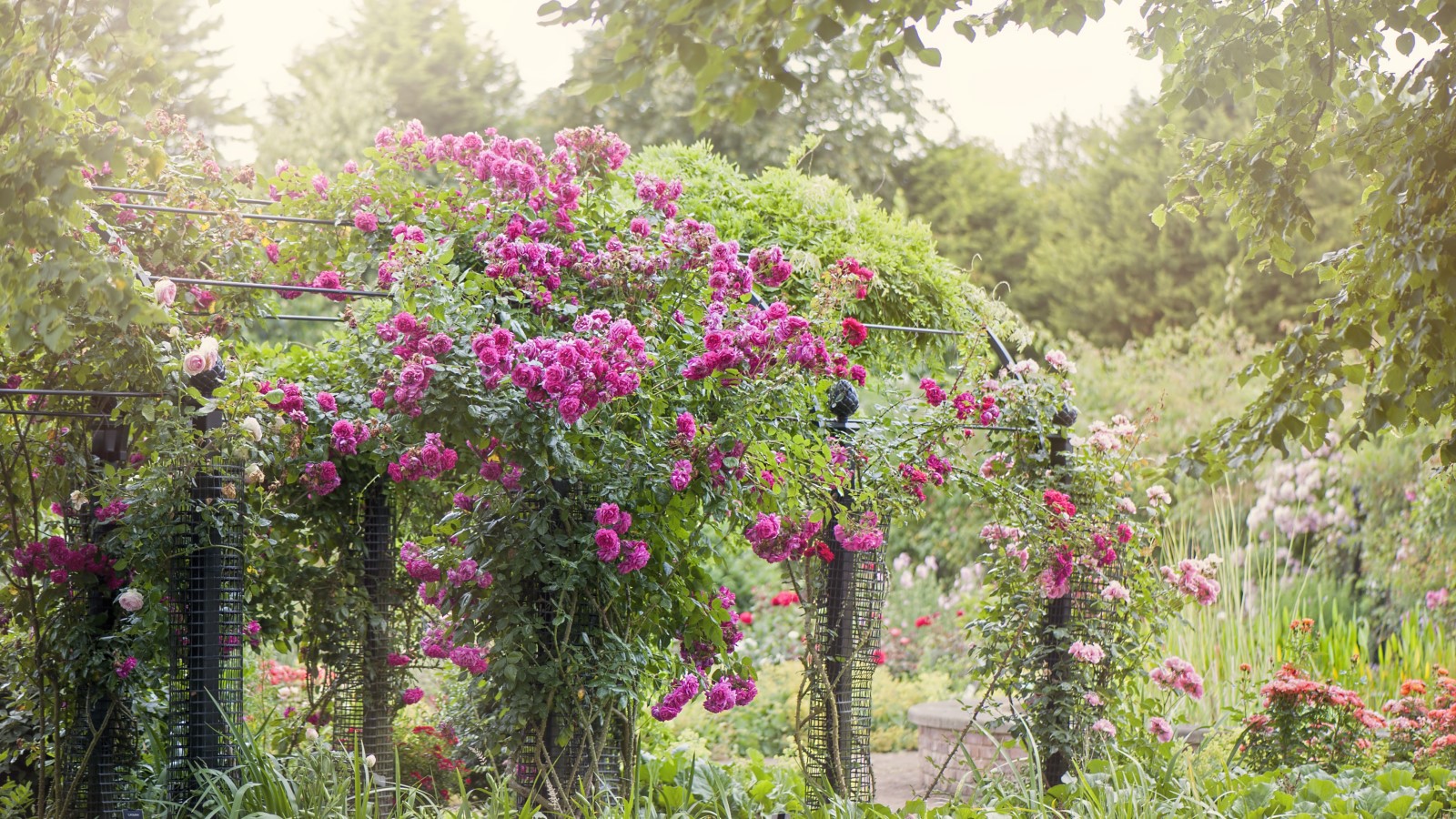
There is no better feeling in my opinion than stepping out onto your patio once the warmer weather has arrived, and breathing in the fresh, calming scent of your favorite flowers. It adds a certain charm and elegance, and a sense of relaxation to your patio ideas.
The evocative nature of scent in the garden has always been hugely important to me, in the almost 20 years that I've been gardening. Even when I had the tiniest outdoor deck at the back of my city apartment, I filled it with containers of aromatic herbs and grew jasmine next to the seating area, which never failed to give me a lift whenever we sat outside.
If you want to discover plants that make your patio smell nice, we've collated eight of the best fragrant flowers and herbs - all of which would thrive in a range of patio planting ideas, from containers and raised planters, to directly in the ground. So, whatever style and size of patio you have, there will be a scented plant to suit you.
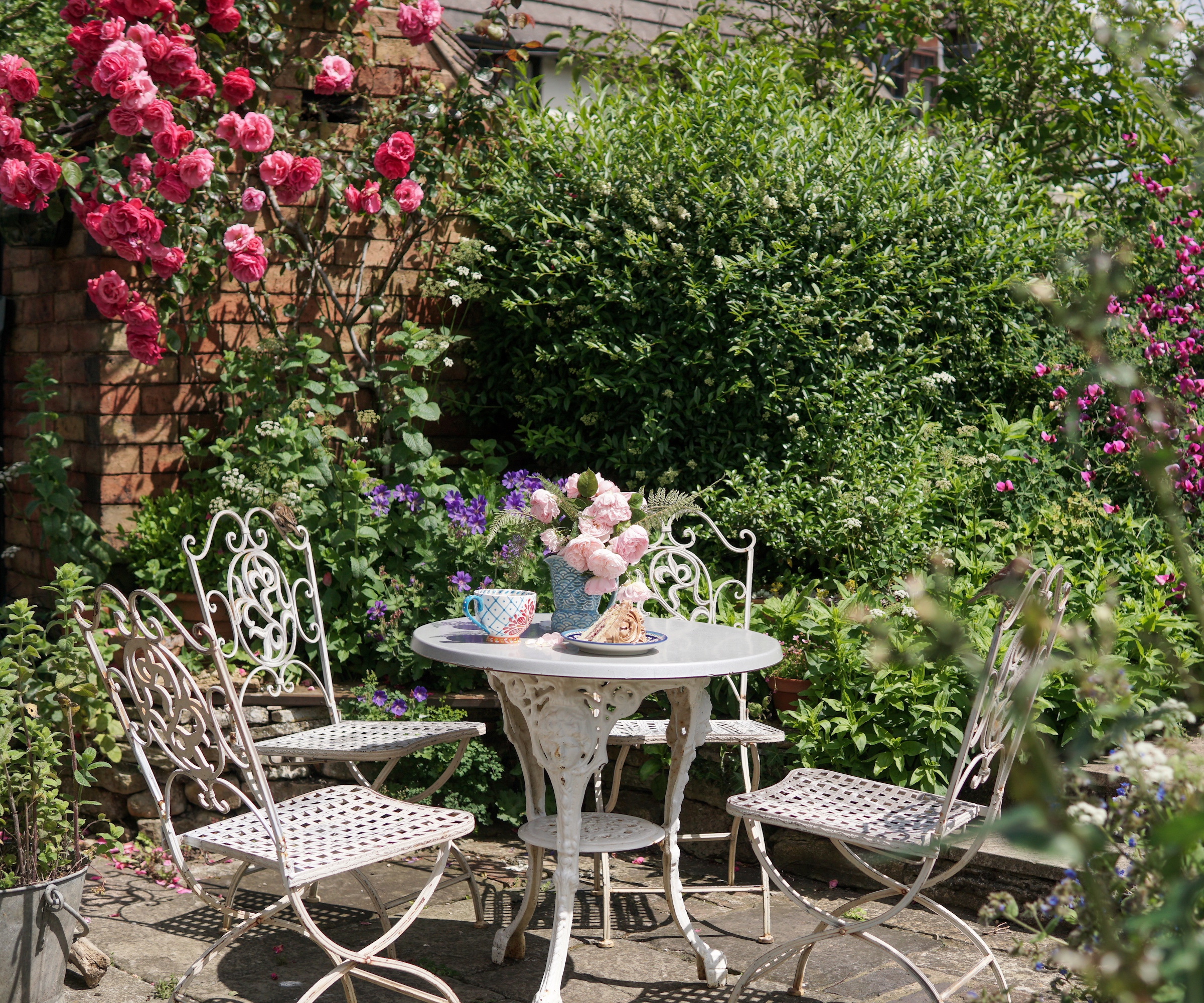
8 plants that make your patio smell nice
Whether you want to evoke nostalgia or add a subtle herbaceous hint of scent, these are some of the most hard-working plants that make your patio small nice.
Star jasmine
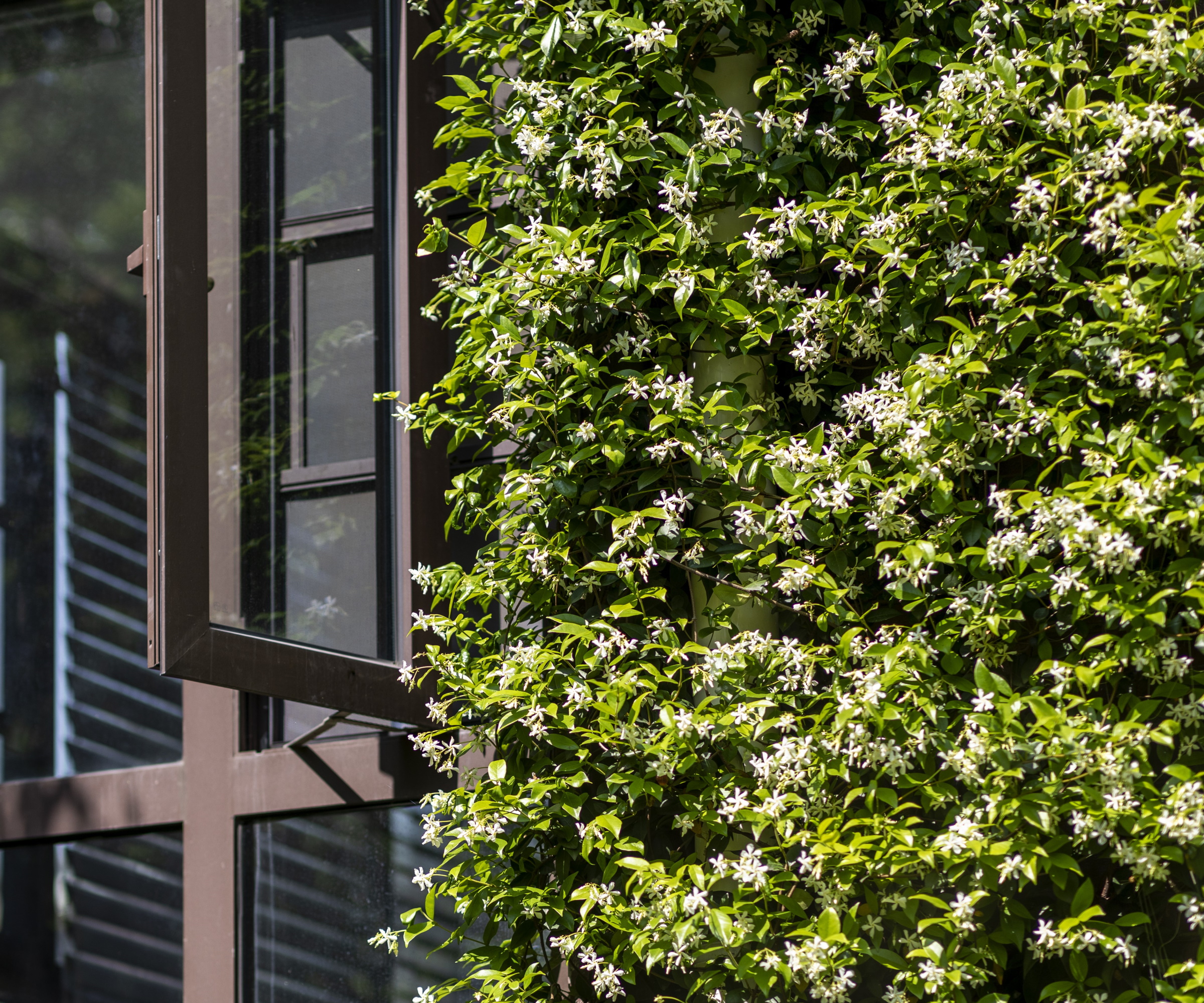
This is coming first in the list because it holds a special place in my heart and I wouldn't be without it on my patio.
I have grown and nurtured the same potted star jasmine shrub (Trachelospermum jasminoides) for the past decade, increasing the size of its pot four times. It has been placed outside my kitchen door leading onto the patio in three different houses, so that every time I pass it I can breath in its scent. Once its creamy, honey-scented flowers bloom from late spring and throughout the summer, it provides my outside space with a rich fragrance I would never be without. The scent gets stronger in the evening after the sun has gone down, too.
I have contained my plant's size by growing it in a pot (deliberately, knowing I would want to bring it with me when we moved home), but if you plant into the ground it may be useful to know how to prune star jasmine, to keep this trailer from getting too vigorous.
Design expertise in your inbox – from inspiring decorating ideas and beautiful celebrity homes to practical gardening advice and shopping round-ups.
Top tip: It also makes for a great winter climber idea owing to its rich, glossy evergreen foliage.
You can buy an established star jasmine plant at Nature Hills.
Rosemary
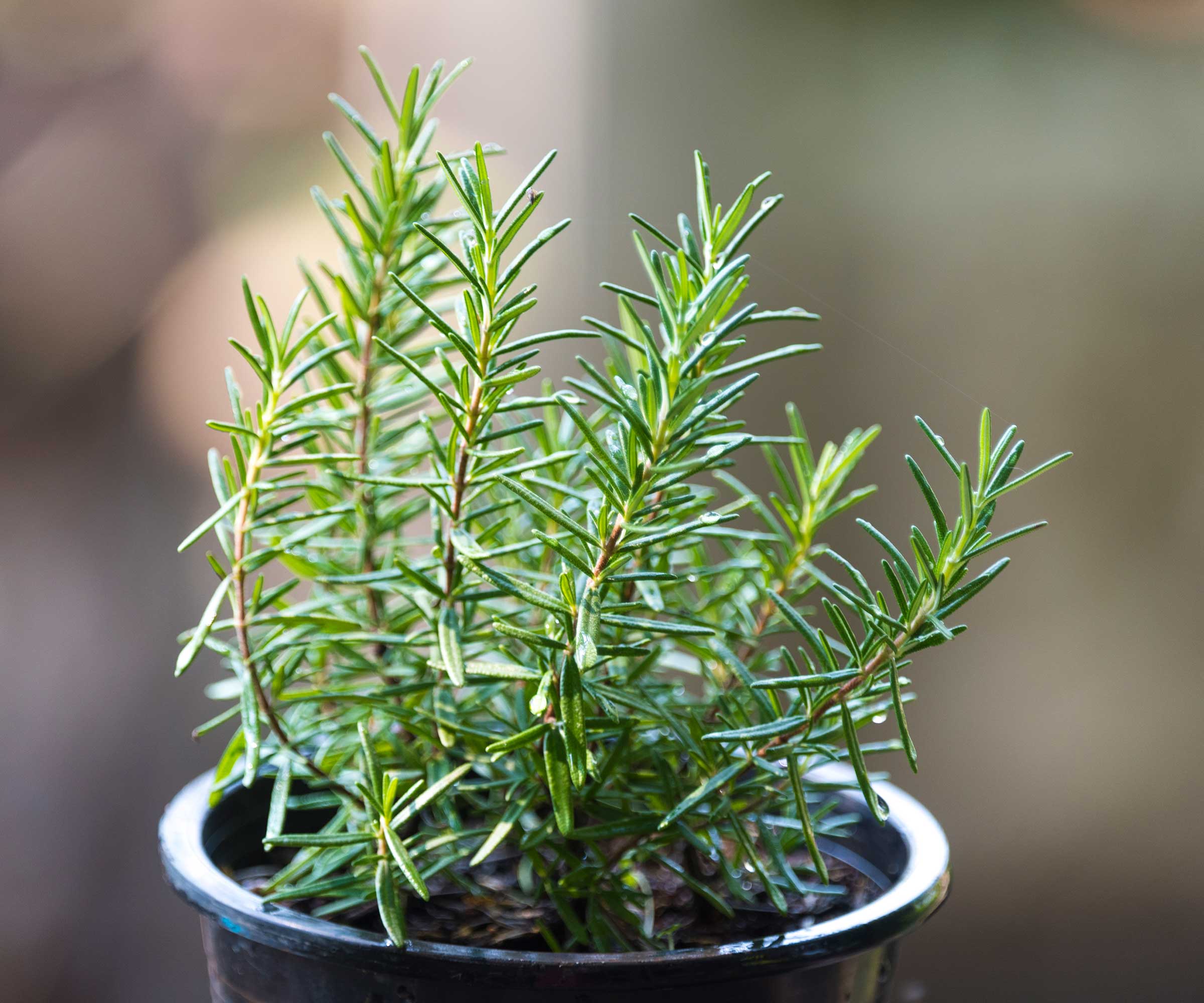
If you want to learn how to grow rosemary, my advice with this herb is to plant or position it where you might brush past it on the patio, to release its heady scent. I planted a rosemary bush outside my front door in my last house. It grew into a large specimen and I purposefully didn't prune it back too much so that I would brush alongside it every time I came home.
This is a hardy, evergreen herb, which will thrive in even poor soil, but doesn't like being waterlogged, so ensure good drainage. It's purple flowers in early spring are a delight to bees and other pollinators, and in my experience it is fast growing, especially if planted in the ground.
I couldn't bring it with me when we moved house, so I took three cuttings, all of which are now growing well on my patio in a large pot.
Top tip: Make sure you have a clean pair of snips to hand on your patio, so you can easily trim off a few sprigs to add to a cocktail or other evening drinks.
You can discover the range of rosemary plants at Burpee.
Lavender

Lavender is a staple of many patio flower beds and container displays, for its relatability and versatility - suiting so many different styles of planting. Plus you will attract a huge number of bees all summer long, which for me is the biggest bonus.
It's useful to understand how often to water lavender to keep it looking its best, as it drought-tolerant and doesn't require too much water. Know when to harvest lavender, too, so that you can ensure your shrubs thrive into the following year and beyond.
Top tip: Lavender and rosemary shrubs both attract rosemary beetles, which look pretty with their iridescent coats, but are a nemesis and can destroy these plants. They are easy to spot, so I simply pick them off and put them at the other end of the backyard.
Honeysuckle

This elegant trailing shrub is a non-negotiable for me - honeysuckle simply has to be growing somewhere along the side of my patio, and usually very close to the seating area to get maximum enjoyment from its honey scent.
You can grow honeysuckle up a trellis, over an arch or against a fence. It will thrive anywhere it can grow upwards. Providing beautiful color and coverage as well as scent, these shrubs provide immense value to a patio area. They can also provide habitats for nesting birds, once well established.
Top tip: If you like the idea of growing scented plants you can also eat, there is a variety of honeysuckle that produces edible berries, (Lonicera caerulea) also known as honeyberries.
You can discover the range of honeysuckle plants at Burpee.
Climbing roses
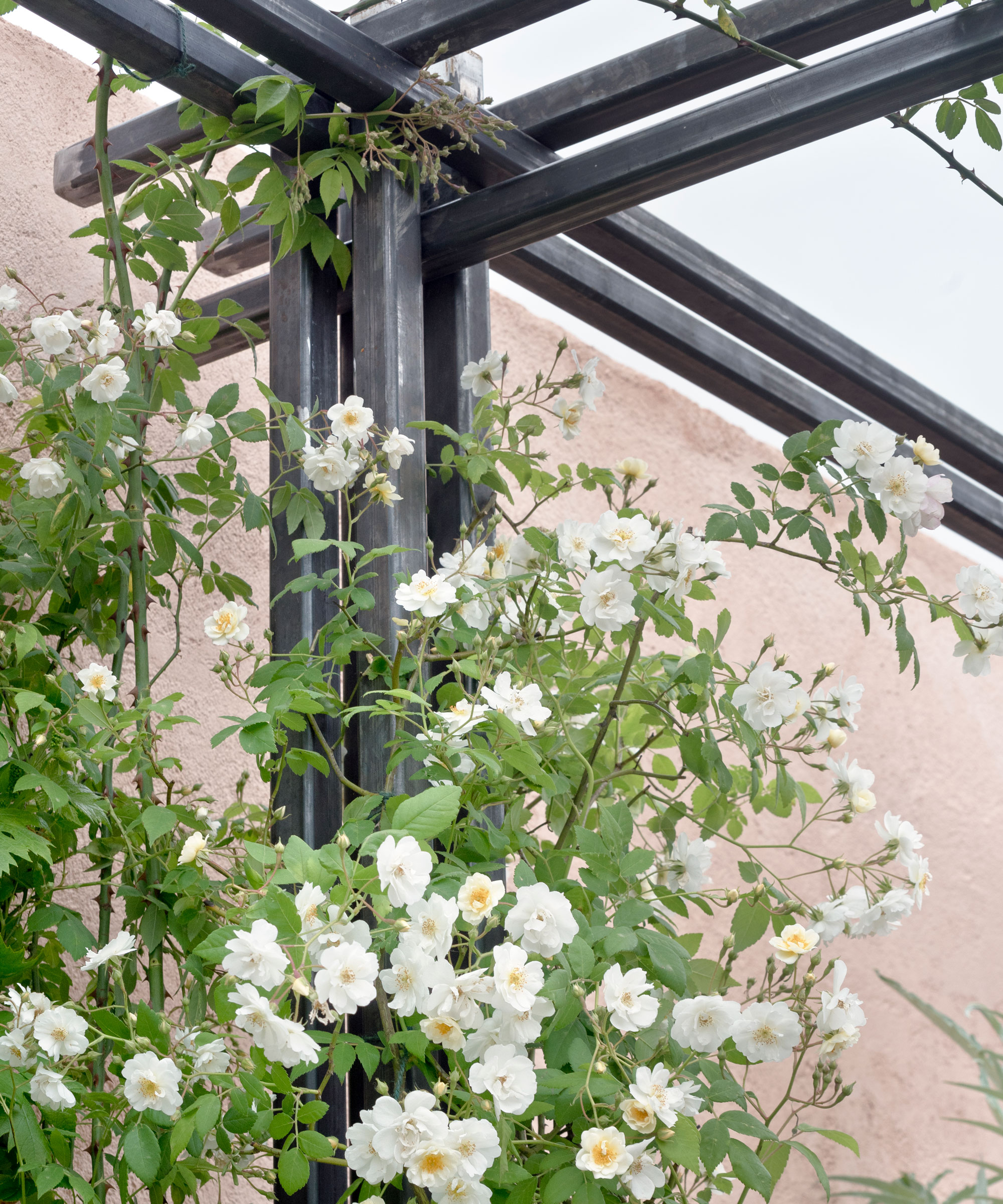
Yes another staple among the plants that make your patio smell nice is the climbing rose. Unrivalled in its English cottage garden-style charm and beauty, these classic roses will produce a heavenly glut of sweet smelling and long lasting blooms to enjoy all summer.
Climbing roses usually thrive in US hardiness zones 5 - 9. You can plant climbing roses to grace walls, fences, trellises and pagodas, happily climbing on any framework, adding structural color and of course height to beds and borders.
For the ultimate romance, try the 'New Dawn' climbing rose from Nature Hills, with its large blooms in blush pink.
Top tip: To train your climbing roses, try to use twine made from natural materials such as jute, or soft plant ties. These materials are gentle on the stems and allow for flexibility as the rose grows.
Sweet peas

If you have the space for a trellis along one side of your patio, I would highly recommend planting sweet peas up it this summer. Renowned for their perfume, they look equally as pretty growing on the vine or as cut stems for a bud vase on your dining table.
It's simple and inexpensive to grow sweet peas from seed, and spring is the perfect time to do it. You can find sweet pea seeds at Ferry Morse.
Top tip: Sweet peas are known as cut-and-come-again flowers, meaning the more you cut, the more fragrant flowers these vines will produce during the growing season.
Gardenia
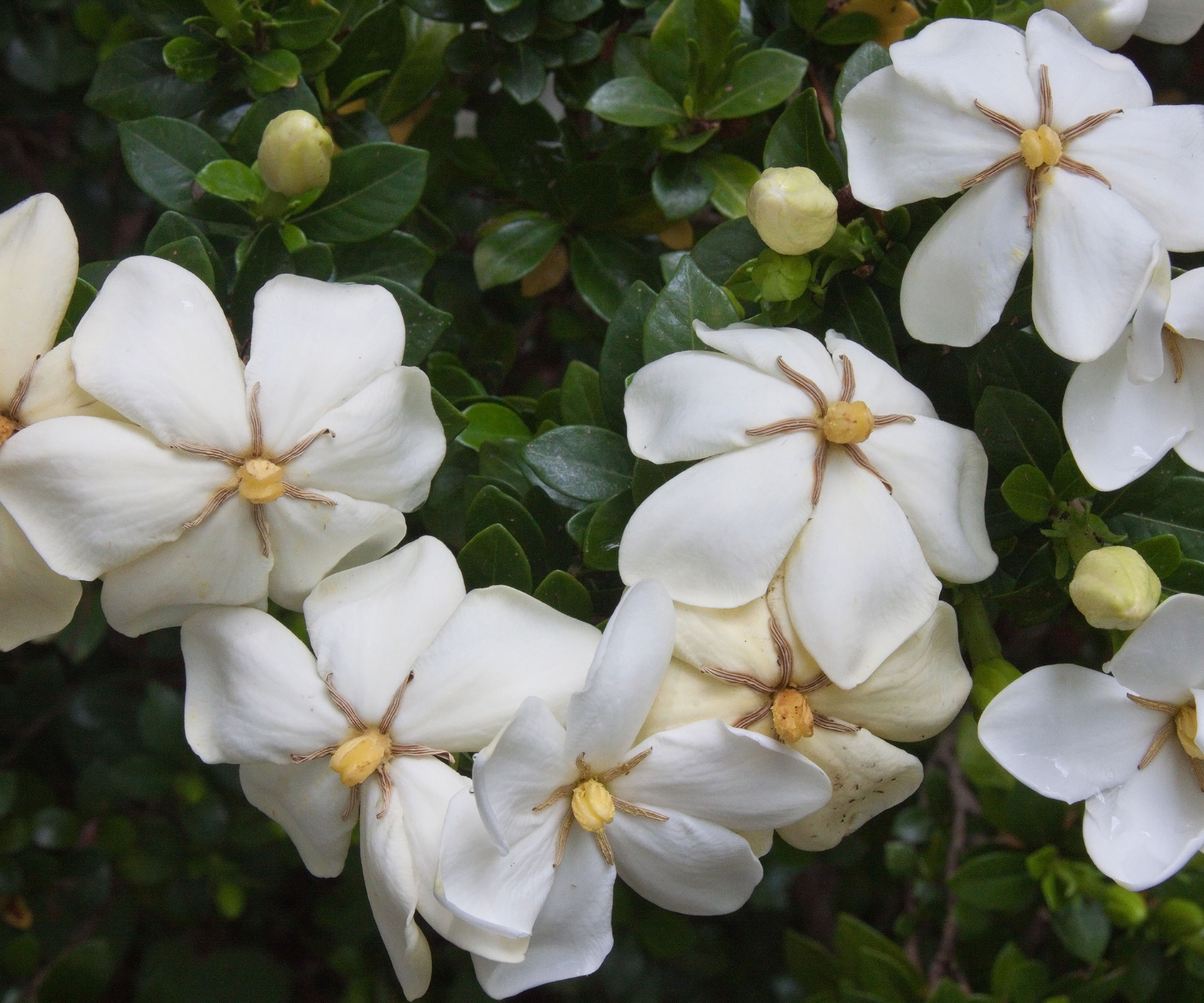
Gardenias are another plant which is well known for its exquisite scent. It also has somewhat of a reputation, however, for being tricky to care for. They like warmer temperatures, and grow well in southern US states, within hardiness zones 8-11.
However, if you live in a more northern area and choose to grow one in a large container, you could bring it indoors over the wintertime to protect it from frost and cold damage.
It would also be useful to understand the right time of year to prune gardenias, to ensure they maintain their optimal size and shape for your space.
Top tip: Gardenias like coffee grounds as a natural fertilizer, owing to its acidic properties.
Discover the wide range of gardenia plants available at Nature Hills.
Flowering tobacco
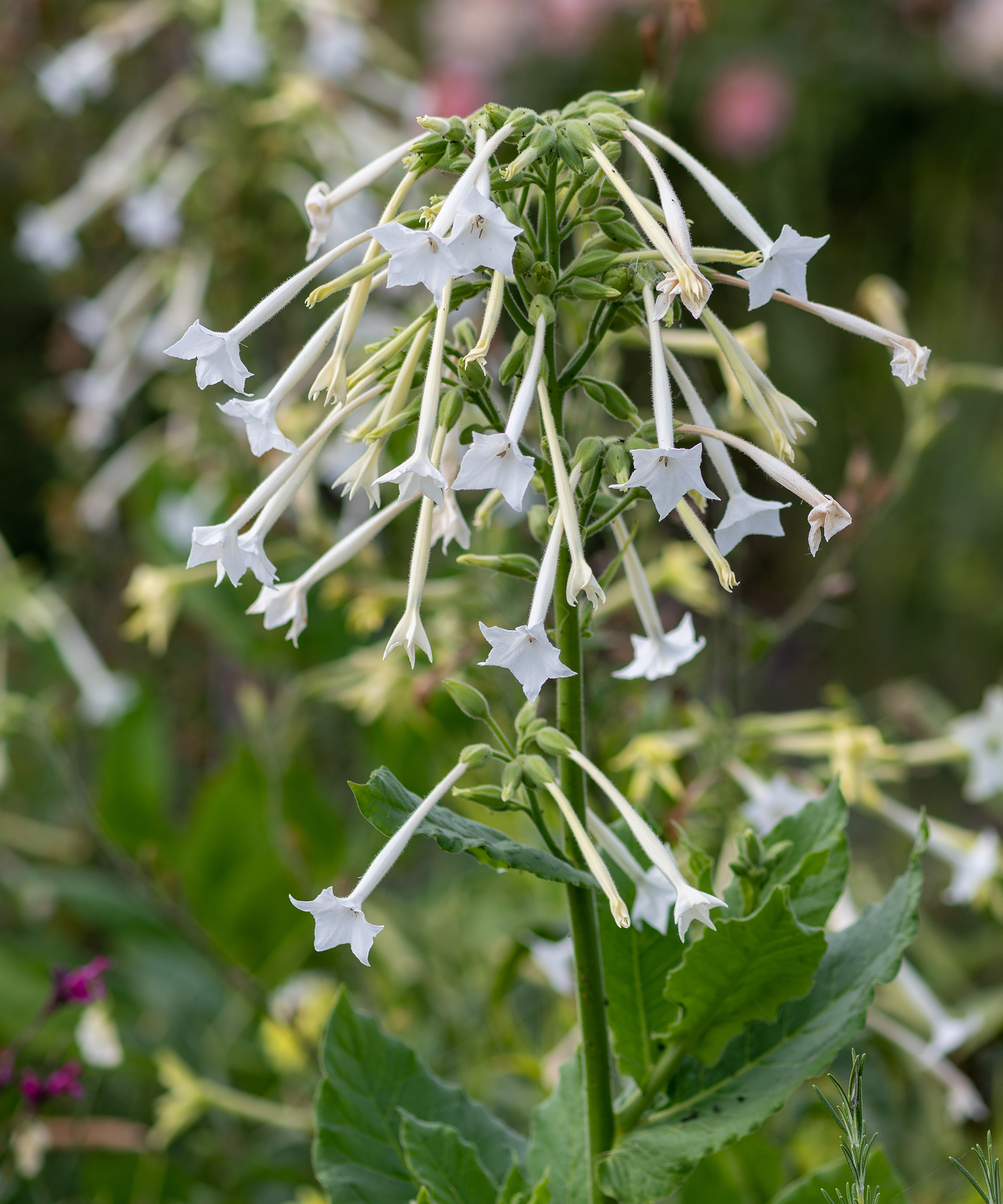
Flowering tobacco or Nicotiana, make wonderful night-scented plants - useful if you are planning a moon garden - and will grow well in containers. They are usually grown as a half-hardy annual and are good for low maintenance border ideas.
Coming in shades of red, pink, white and lime green, their two inch long trumpets provide us with an indulgent level of jasmine-scented perfume.
Top tip: Because they release their heady scent in the evening, flowering tobacco plants are wonderful for attracting night pollinators, such as bats and moths - great if you are interested in attracting more wildlife into your backyard.
You can buy Nicotiana seeds at Burpee.
Now that you're fully inspired with fragrant planting ideas for your patio, you might be interested in some creative patio lighting ideas, or patio shade ideas, to create the perfect outdoor haven this summer.
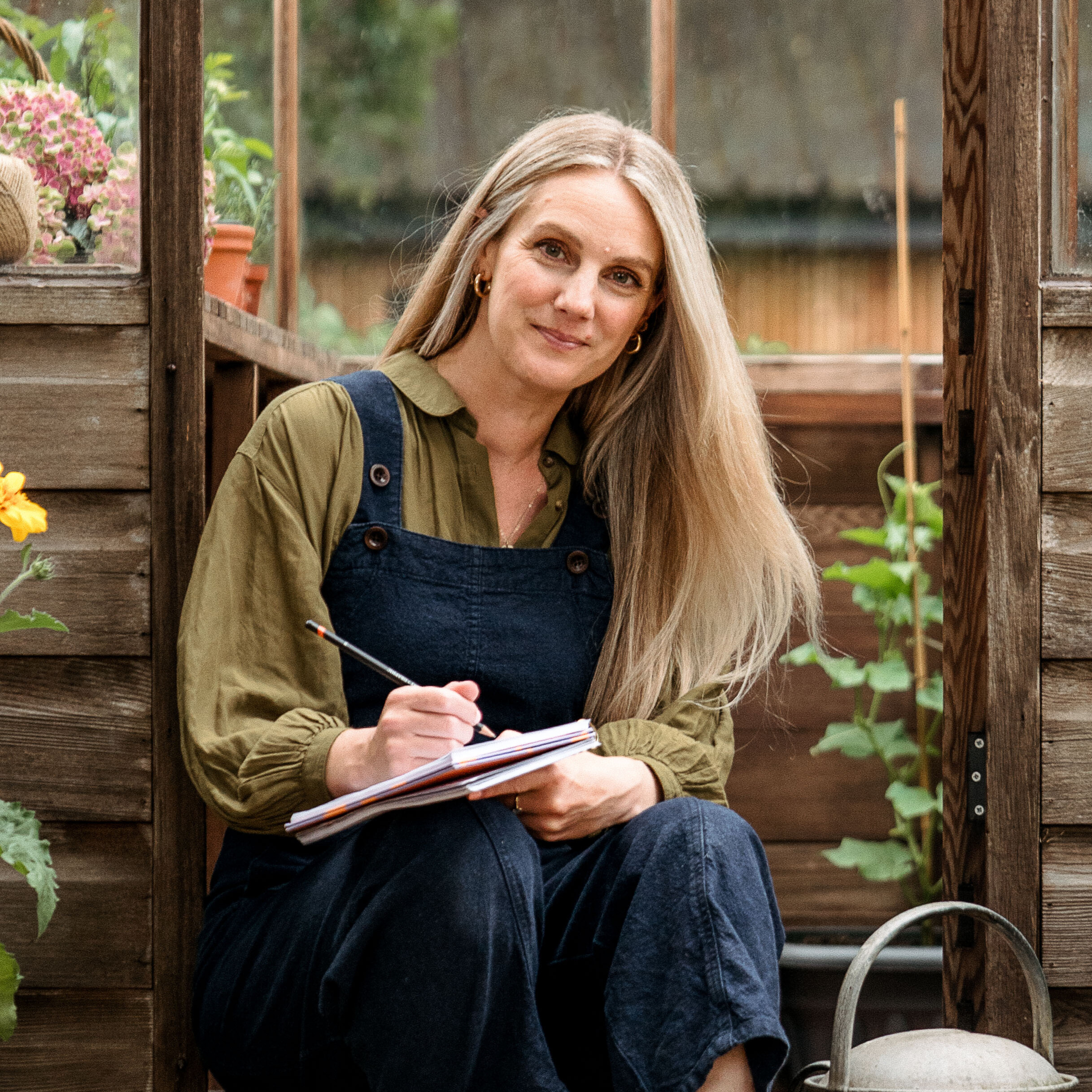
Rachel is a gardening editor, floral designer, flower grower and gardener. Her journalism career began on Country Living magazine, sparking a love of container gardening and wild planting. After several years as editor of floral art magazine The Flower Arranger, Rachel became a floral designer and stylist, before joining Homes & Gardens in 2023. She writes and presents the brand's weekly gardening and floristry social series Petals & Roots. An expert in cut flowers, she is particularly interested in sustainable gardening methods and growing flowers and herbs for wellbeing. Last summer, she was invited to Singapore to learn about the nation state's ambitious plan to create a city in nature, discovering a world of tropical planting and visionary urban horticulture.